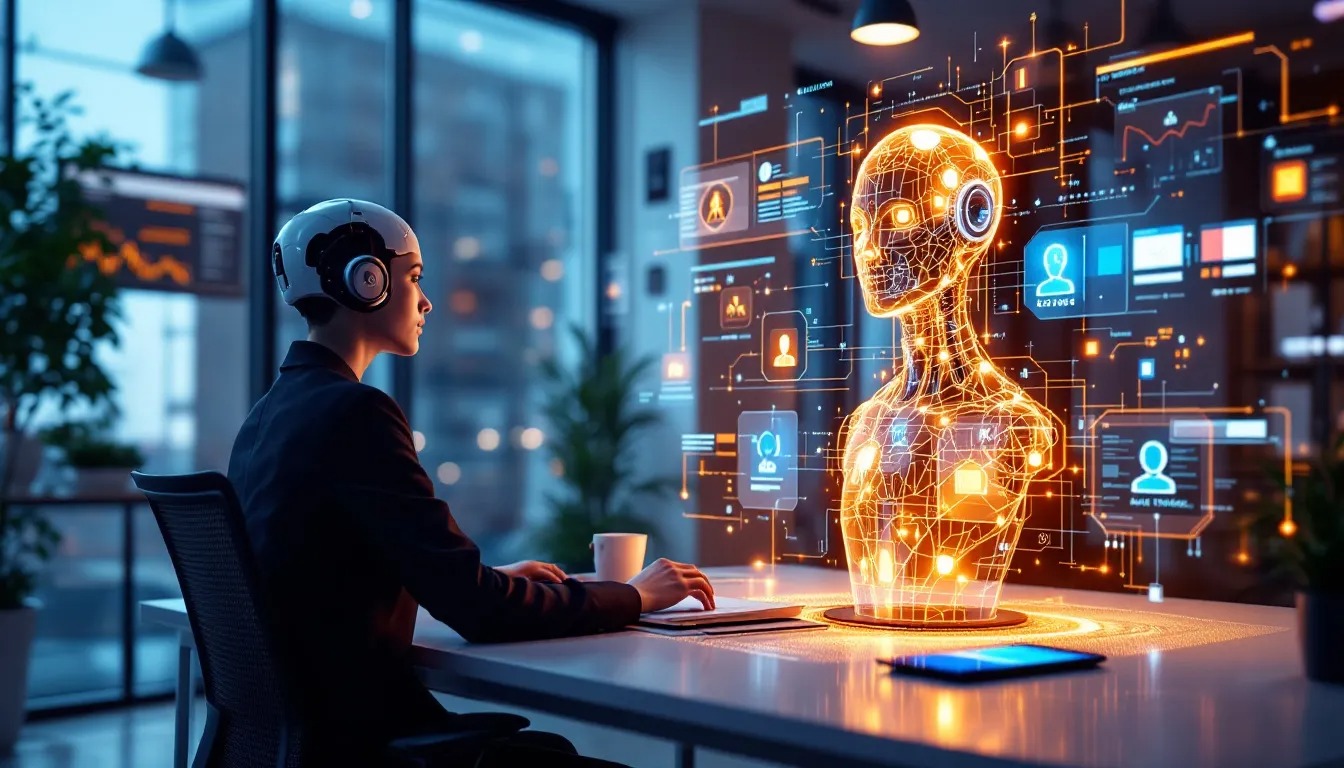Artificial Intelligence (AI) continues to revolutionize how we interact with technology, and at the heart of this transformation are Build AI Workspaces. These autonomous entities are designed to perceive their environment, make decisions, and perform tasks—often without human intervention. But what exactly are AI agents, and why are they so pivotal in the world of AI?
What Are AI Agents?
An AI agent is a software program or system that can act independently to achieve specific goals by perceiving its environment through sensors and acting upon it via effectors or actuators. Unlike traditional software, AI agents possess the capability to learn, adapt, and make decisions based on data inputs and changing circumstances.
AI agents can be simple or highly complex:
-
Simple Reflex Agents respond directly to specific inputs with predefined outputs.
-
Model-Based Agents maintain an internal state to make better decisions.
-
Goal-Based Agents take actions to achieve a particular objective.
-
Utility-Based Agents weigh options to maximize a specific measure of performance.
How Do AI Agents Work?
AI agents operate through a continuous cycle:
-
Perception: The agent collects data from the environment via sensors (e.g., cameras, microphones, or software inputs).
-
Processing: It analyzes this data using algorithms, such as machine learning models or logical reasoning.
-
Decision Making: The agent evaluates possible actions based on its goals or utility functions.
-
Action: It performs an action through actuators or outputs that affect the environment.
-
Learning: Some agents can improve their performance over time through feedback.
This cycle enables AI agents to function in dynamic environments, from simple household robots to complex financial trading systems.
Applications of AI Agents
AI agents are already transforming numerous industries:
-
Virtual Assistants: Siri, Alexa, and Google Assistant act as AI agents by understanding user commands and performing tasks such as setting reminders or controlling smart homes.
-
Autonomous Vehicles: Self-driving cars use AI agents to perceive their surroundings, make navigation decisions, and safely drive without human input.
-
Customer Service: Chatbots provide 24/7 support by interpreting customer queries and responding intelligently.
-
Gaming: AI agents control non-player characters (NPCs) that adapt to player strategies, enhancing the gaming experience.
-
Finance: AI agents analyze market data and execute trades based on real-time insights.
-
Healthcare: Agents assist in diagnostics, monitoring patient data, and even managing drug delivery.
Challenges and Ethical Considerations
While AI agents offer immense benefits, they also bring challenges:
-
Decision Transparency: Understanding how AI agents make decisions is crucial for trust.
-
Bias and Fairness: Agents trained on biased data can perpetuate discrimination.
-
Security Risks: Autonomous agents may be vulnerable to hacking or misuse.
-
Job Displacement: Automation through AI agents can impact employment in certain sectors.
Addressing these concerns requires careful design, regulation, and ongoing monitoring of AI agent systems.
The Future of AI Agents
As AI research advances, AI agents will become more sophisticated, capable of collaboration, reasoning, and emotional intelligence. Concepts like multi-agent systems—where multiple AI agents interact to solve problems collectively—will further expand their potential.
Incorporating AI agents into daily life promises a future where automation is smarter, more adaptive, and seamlessly integrated into human activities, ultimately enhancing productivity and quality of life.
